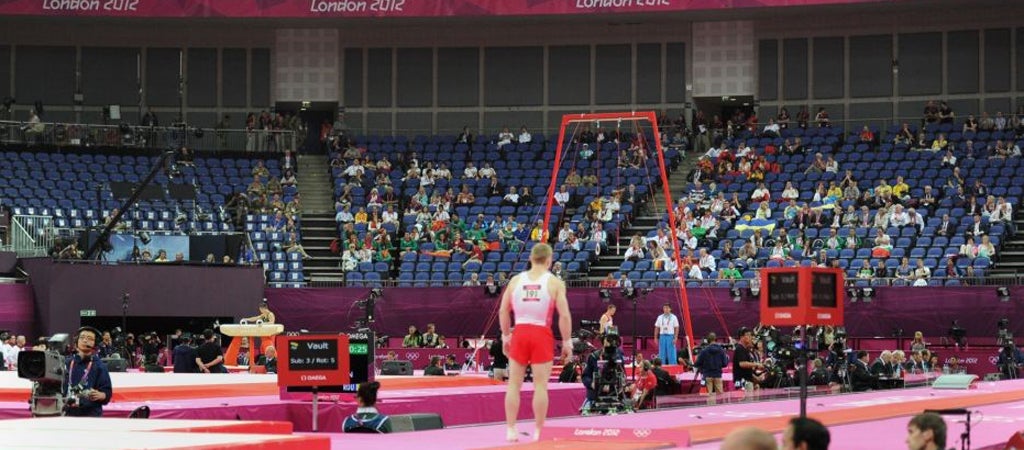
Thank heavens for the thin red line of these Olympics, the soldiers who brought instant reassurance under the threat of a security meltdown and now, understandably enough, are seen as a better short-term option than cardboard cut-out spectators in the vital matter of filling the empty spaces.
Yesterday they reported for duty at the hall of gymnastics – one of the sites suffering a killing lack of that oxygen supplied by evidence of a home nation's Olympic passion.
The supply of tickets has, of course, always been a pivotal issue in any sense that these Games indeed belong to the people of London and the wider nation rather than the moveable city state of the Olympic movement and the favoured of the corporate world.
Yesterday morning the Aquatics Centre – another place where the huge disparity between the packed cheaper seats of those who entered the ticket lottery hoping for a close-up, flesh-and-blood view of the event that has made so many demands on their taxes, and their working convenience, and the swathes of empty places reserved for the Olympic family and the sponsors has been unacceptably large – did not benefit from any input of emergency fans.
It meant that Rebecca Adlington, the double gold-winning heroine of Beijing, had to negotiate her tricky heat in the 400m freestyle in front of a dismaying number of unoccupied seats in the most expensive section poolside. In the people's zone it was inflamed, shoulder-to-shoulder support – and new questions had to be asked about how many potential live fans were back home tuning into television.
In Beijing there was a tendency to sneer at the programming of supporters, the hordes of favoured party members being bussed deep into the city's suburbs, armed with their officially distributed flags. But one desired effect was the impression, however superficial, that beach volleyball was almost as compelling as the historic 100-metre dash of Usain Bolt.
London's Olympic leader, Sebastian Coe, yesterday spoke of urgent efforts to remedy the problem and the Culture Secretary, Jeremy Hunt, said: "I was at the Beijing Games in 2008 and one of the lessons that we took away is that full stadia create the best atmosphere, it's best for the athletes and more fun for the spectators."
There is no question about his basic point but there is a huge moral imperative that does not appear to have been at the heart of the ticket strategy here in London. It is either a celebration for as many of the people as possible or it isn't. This should not, surely, be balanced against any overpowering requirement to provide the corporate world with more privileges than the benefits of their commercial involvement.
There were not too many corporate suites on the roadsides of the Olympic road race at the weekend when Mark Cavendish battled unavailingly for his first Olympic medal.
What we did have, though, was the strongest evidence of the desire of ordinary people to be involved in the drama of the Olympics.
This should not be about providing the corporates with more privileges
Subscribe to Independent Premium to bookmark this article
Want to bookmark your favourite articles and stories to read or reference later? Start your Independent Premium subscription today.

Join our commenting forum
Join thought-provoking conversations, follow other Independent readers and see their replies